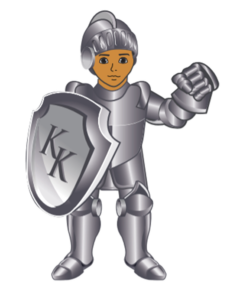Ideally the recommended age to start kindergarten is from 5-6 years of age. However, starting as early as 4 or later on at 7 years is also possible depending on the preparedness of your child to start. By age 3 a child’s brain is developed to about 80 percent of an average adult brain. At age 5, development of the brain is at 90 percent, therefore being the recommended age to start kindergarten.
How to know whether your child is ready and prepared to start is if they already demonstrate independence and can stay away from parents for long periods of time.
Listed are some of the important factors to consider when choosing a kindergarten for your little one.
- Kindergarten schedule.
It is important to know the schedule of the kindergarten in order to blend it with the parents’ timing. Is it a full day schedule or half day? Find out how many days a week the schedule is on, depending on the needs of the child.
- Day care.
Some parents have to go to work and it is vital to find out if the kindergarten offers after school or before school care.
- Type of school.
Having an idea of whether it is a private school or a public school is important so that parents can factor in the issue of tuition and methods of teaching.
- Kindergarten curriculum.
The kindergarten should have a curriculum suited for your child. For instance, if they offer programs that support kids’ strengths such as music, art et cetera.
- Kindergarten amenities.
Find out if the kindergarten has child friendly facilities like a well-equipped playground, music classes, the technology they use, kids’ toilets et cetera.
- Classroom environment.
It is important to visit and see the size of the classroom, the layout of the classroom, availability of play and rest mats for play and nap time, reading nooks, art supplies et cetera. Even after settling on a school, visit and observe how your child fits in.
- Kindergarten community.
Interact with other parents with children in the same kindergarten. Although each experience is different, it helps to give an idea of what to expect.
- Proximity
Location of the school matters. It’s important to note whether you need transport to school or it’s walking distance. The surroundings of a kindergarten also matter. How safe is the neighborhood? Also the convenience of getting to and from school et cetera.
- Teacher student ratio.
This spirals down to attention. The teacher student ratio translates to the care and support a teacher gives to each child. Note the teacher student ratio, their methods of teaching, if they are patient with children et cetera.
- Kindergarten fees.
Affordability of the kindergarten is also important to factor in depending on your family set up.
- Meals
Note whether the kindergarten provides meals or have different arrangement for the children. If they provide meals, find out if they offer healthy meal options or customized depending on the child’s needs.
Kindergarten is vital in the child’s growth and development. It sets the foundation of well-rounded individuals. Therefore, it is important to tick off the most important factors while choosing a school.
